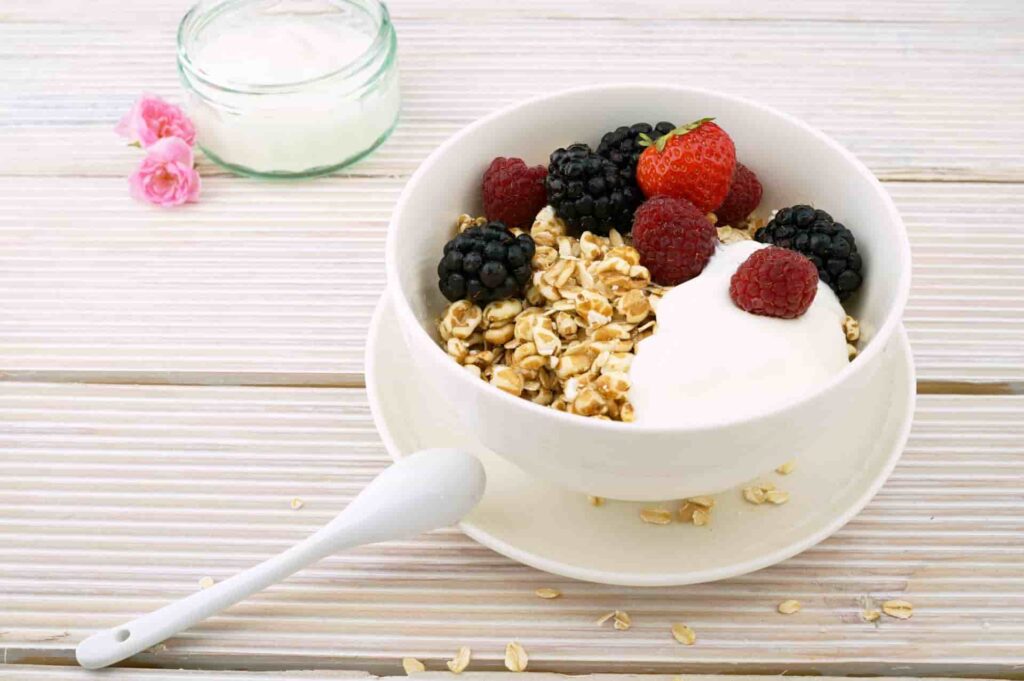Table of Contents
Table of Contents
Table of Contents
The Importance of a Full English Breakfast for Children's Development

The Power of Breakfast: Fueling Children for Success
A full English breakfast, with its hearty combination of protein, carbohydrates, and fats, can be a fantastic way to kickstart a child’s day and set them up for success. Breakfast, often hailed as the most important meal of the day, plays a crucial role in a child’s physical and cognitive development. Skipping breakfast can lead to decreased concentration, lower energy levels, and even behavioral issues. This article explores the numerous benefits of a nutritious breakfast, with a special focus on the full English breakfast, and provides practical tips for parents to ensure their children start each day with a healthy and satisfying meal.
Why Breakfast Matters: Setting the Stage for Success

Children need consistent energy throughout the day to learn, play, and grow. After an overnight fast, their bodies require replenishment to function optimally. A balanced breakfast provides this essential fuel, supplying the brain and body with the nutrients needed for peak performance. Here’s why breakfast is so vital:
- Improved Concentration and Cognitive Function: Studies have shown a direct link between breakfast consumption and improved cognitive function in children. A well-nourished brain is better equipped to focus, process information, and retain knowledge. This directly translates to better performance in school and other learning environments.
- Enhanced Energy Levels: Breakfast provides the energy needed to power through the morning. Children who eat breakfast are more likely to be active and engaged, both physically and mentally. Skipping breakfast, on the other hand, can lead to fatigue, irritability, and decreased participation in activities.
- Better Mood and Behavior: A stable blood sugar level, maintained by regular meals including breakfast, contributes to a more positive mood and better behavior. Children who skip breakfast are more prone to mood swings, irritability, and difficulty concentrating, which can impact their interactions with peers and adults.
- Weight Management: Contrary to popular belief, skipping breakfast can actually contribute to weight gain. When children skip breakfast, they are more likely to overeat later in the day, often choosing less healthy, high-calorie options. A nutritious breakfast helps regulate appetite and promotes healthier eating habits overall.
The Full English Breakfast: A Nutritional Powerhouse

While various breakfast options exist, including french toast, breakfast burritos, and quick options like McDonald’s breakfast or mcd breakfast, the full English breakfast offers a particularly comprehensive blend of nutrients. This classic breakfast typically includes:
- Eggs: Whether eggs scrambled, fried, or poached, they provide high-quality protein, essential for growth and development.
- Bacon or Sausage: These provide additional protein and contribute to satiety. However, it’s important to choose lean options and consume them in moderation due to their higher fat content.
- Baked Beans: A good source of fiber and complex carbohydrates, providing sustained energy release.
- Toast or Fried Bread: Provides carbohydrates for energy and fiber (especially wholemeal toast).
- Tomatoes and Mushrooms: Offer vitamins, minerals, and antioxidants.
This combination makes the full English breakfast a truly best breakfast option, providing a balanced mix of macronutrients. It’s an excellent alternative to sweeter options like American pancakes or a pancakes house breakfast, or faster options like Taco Bell breakfast or a quick mcdonald’s breakfast hours run. It can even be a more nutritious choice than a simple continental breakfast.
Adapting the Full English Breakfast for Children

While the traditional full English breakfast is a great starting point, parents can adapt it to suit their children’s preferences and dietary needs. Here are some tips:
- Portion Control: Adjust portion sizes based on your child’s age and appetite.
- Healthier Swaps: Use lean bacon or turkey sausage, and opt for wholemeal toast instead of fried bread.
- Add Variety: Include other vegetables like spinach or peppers.
- Consider Alternatives: If your child dislikes certain components, offer alternatives like benedict eggs, a breakfast burrito, or even a simplified version with just eggs scrambled and toast.
Comparing Breakfast Options: From Turkish Breakfast to Chick-fil-A

While the full English breakfast provides a robust meal, it’s useful to compare it to other breakfast traditions and fast-food options. A Turkish breakfast, for instance, often features a variety of cheeses, olives, tomatoes, cucumbers, and bread, offering a different but equally nutritious approach. Comparing these to the convenience of chick fil a breakfast hours or a mcd breakfast hours run highlights the nutritional differences. While fast food can be convenient, it often lacks the balance and nutritional density of a home-cooked meal like the full English breakfast. Even options like breakfast tacos or a quick stop at a pancakes house might not offer the same well-rounded nutrition.
Establishing a Breakfast Routine

Making Breakfast a Habit and Exploring Other Healthy Options.
Making breakfast a regular part of your child’s day requires planning and consistency. Here are some practical tips to help establish a healthy breakfast routine:
- Plan Ahead: Prepare as much as possible the night before. This could include setting the table, chopping vegetables, or even pre-cooking some components of the full English breakfast, like baking the beans or hard-boiling eggs.
- Set a Consistent Wake-Up Time: A regular sleep schedule helps regulate your child’s internal clock and makes it easier for them to feel hungry in the morning.
- Make it Appealing: Present breakfast in an attractive way. Use colorful plates, cut food into fun shapes, or let your child help with simple preparation tasks.
- Offer Choices: Provide a variety of healthy breakfast options to prevent boredom. While the full English breakfast is a great choice, consider alternatives like yogurt with fruit and granola, oatmeal with berries and nuts, or whole-wheat toast with avocado and eggs scrambled.
- Lead by Example: Children are more likely to adopt healthy habits if they see their parents doing the same. Make breakfast a family affair whenever possible.
- Start Small: If your child isn’t used to eating breakfast, start with small portions and gradually increase them over time. Even a small piece of fruit or a handful of nuts is better than nothing.
Beyond the Full English: Exploring Other Nutritious Breakfast Ideas

While the full English breakfast offers a comprehensive nutritional profile, it’s important to offer variety and cater to individual preferences. Here are some other best foods for breakfast that you can incorporate into your child’s diet:
- Oatmeal: A great source of fiber, which promotes digestive health and provides sustained energy release. Top it with fruit, nuts, or seeds for added flavor and nutrition.
- Yogurt: Provides protein, calcium, and probiotics, which are beneficial for gut health. Choose plain yogurt and add your own fruit or honey to control sugar intake.
- Fruit: A natural source of vitamins, minerals, and fiber. Berries, bananas, apples, and oranges are all great choices.
- Whole-Wheat Toast: Provides complex carbohydrates and fiber. Top it with avocado, nut butter, or eggs scrambled for a more substantial meal.
- Smoothies: A quick and easy way to pack in fruits, vegetables, and protein. Use yogurt, milk, or juice as a base and add your favorite ingredients.
These options can be just as beneficial as a full English breakfast, especially when considering factors like time constraints or individual tastes. They also offer a good alternative to quick fixes like a McDonald’s breakfast or a Taco Bell breakfast, which often lack essential nutrients.
The Importance of a Balanced Diet: From Breakfast to Dinner

Breakfast is just one piece of the puzzle when it comes to a child’s overall health and well-being. It’s important to ensure they are consuming a balanced diet throughout the day, including nutritious best lunch and best dinners. Here are some general guidelines:
- Plenty of Fruits and Vegetables: Aim for at least five servings per day.
- Whole Grains: Choose whole-wheat bread, pasta, and rice over refined grains.
- Lean Protein: Include sources like chicken, fish, beans, and lentils.
- Healthy Fats: Incorporate sources like avocados, nuts, and seeds.
- Limit Processed Foods: Reduce consumption of sugary drinks, snacks, and fast food.
By focusing on a balanced diet throughout the day, you can ensure your child is getting the nutrients they need to thrive. Even a well-rounded full English breakfast needs to be complemented by healthy choices at other meals.
Addressing Common Breakfast Challenges

Many parents face challenges when it comes to getting their children to eat breakfast. Here are some common issues and potential solutions:
- Lack of Time: Prepare as much as possible the night before, choose quick and easy options like smoothies or yogurt, or try preparing a batch of breakfast burritos or french toast on the weekend to freeze and reheat during the week.
- Picky Eaters: Offer a variety of options and let your child choose what they want. Involve them in meal planning and preparation. Don’t force them to eat something they don’t like, but encourage them to try new things.
- Lack of Appetite: Start with small portions and gradually increase them over time. Offer breakfast shortly after waking up. Make sure they are not snacking too close to bedtime.
By addressing these challenges and implementing the strategies outlined in this article, you can help your child develop healthy breakfast habits that will benefit them for years to come. Whether it’s a full English breakfast, a bowl of oatmeal, or a simple piece of fruit, starting the day with a nutritious meal is essential for their physical and cognitive development.
The Long-Term Benefits of Healthy Breakfast Habits

Establishing healthy breakfast habits in childhood has far-reaching benefits that extend into adulthood. Here are some key long-term advantages:
- Reduced Risk of Chronic Diseases: Studies have shown that children who regularly eat breakfast are less likely to develop chronic diseases such as obesity, type 2 diabetes, and heart disease later in life.
- Improved Academic Performance: Consistent breakfast consumption is linked to better academic performance, including improved concentration, memory, and problem-solving skills.
- Healthier Lifestyle Choices: Children who develop healthy eating habits early on are more likely to maintain those habits throughout their lives, leading to a healthier overall lifestyle.
- Better Mood Regulation: Regular meals, including breakfast, help stabilize blood sugar levels, which can contribute to better mood regulation and reduced risk of mood disorders.
These long-term benefits underscore the importance of prioritizing breakfast and making it a non-negotiable part of your child’s daily routine. Whether it’s a traditional full English breakfast, a quick breakfast burrito, or a simple bowl of yogurt, the act of fueling the body and brain in the morning sets the stage for a healthier and more successful future.
Addressing Misconceptions about Breakfast

There are several common misconceptions about breakfast that need to be addressed:
- «Skipping breakfast saves calories.» As mentioned earlier, skipping breakfast can actually lead to overeating later in the day, often choosing less healthy options. A balanced breakfast helps regulate appetite and promotes healthier eating habits overall.
- «Breakfast is only important for children.» While breakfast is particularly crucial for children’s development, it’s important for people of all ages. Adults who eat breakfast tend to have better energy levels, concentration, and overall health.
- «Any breakfast is better than no breakfast.» While some breakfast is better than none, it’s important to choose nutritious options. Sugary cereals, pastries, and fast food breakfasts like some McDonald’s breakfast or Chick-fil-A breakfast hours offerings may provide a quick energy boost but lack essential nutrients and can lead to a subsequent energy crash. A full English breakfast, when prepared with healthier swaps, offers a much more balanced and sustained energy source.
Practical Tips for Busy Families

Many families struggle to find time for breakfast in the morning. Here are some practical tips for busy families:
- Batch Cooking: Prepare large batches of breakfast items like french toast, muffins, or breakfast casseroles on the weekend and freeze them for quick and easy breakfasts during the week.
- Overnight Oats: Prepare overnight oats by combining oats, milk, yogurt, and your favorite toppings in a jar and refrigerating overnight. This makes for a quick and nutritious grab-and-go breakfast.
- Utilize Leftovers: Repurpose leftovers from dinner into breakfast. For example, leftover cooked chicken can be added to eggs scrambled or used in a breakfast burrito.
- Keep it Simple: Even a simple piece of fruit, a handful of nuts, or a hard-boiled egg is better than skipping breakfast altogether.
Conclusion: Investing in Your Child's Future, One Breakfast at a Time
Breakfast is more than just a meal; it’s an investment in your child’s health, well-being, and future success. By prioritizing breakfast and providing nutritious options like the full English breakfast or other balanced meals, you are setting them up for a lifetime of healthy habits. From improved concentration and energy levels to reduced risk of chronic diseases, the benefits of a healthy breakfast are undeniable.
While quick options like a mcd breakfast, Taco Bell breakfast, or a visit to a pancakes house might seem convenient, they often lack the nutritional value of a home-cooked meal. Taking the time to prepare a balanced breakfast, even on busy mornings, is a worthwhile investment that will pay dividends in the long run. Whether it’s a hearty full English breakfast, a quick smoothie, or a simple piece of fruit, make breakfast a priority and watch your child thrive. Remember to consider the overall diet, including best lunch and best dinners, to ensure a balanced intake of nutrients.
According to the American Academy of Pediatrics, breakfast is crucial for optimal learning and concentration — AAP


